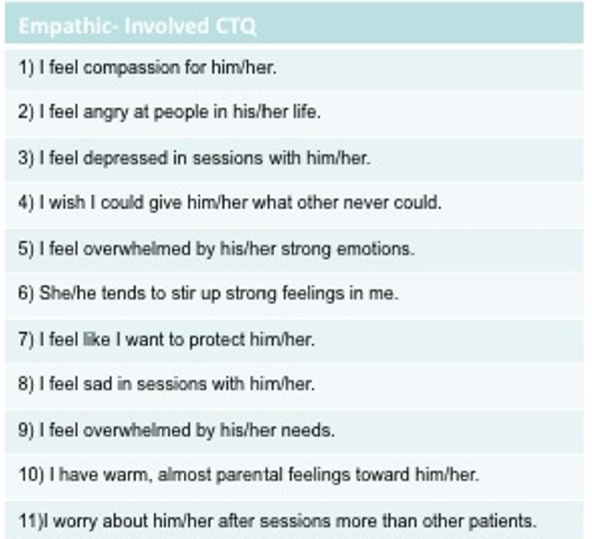No CrossRef data available.
Published online by Cambridge University Press: 15 April 2020
Countertransference (CT) includes a full range of cognitive, affective and behavioral responses that therapists experiment with their patients. Countertransference is closely related to Empathy; defined as the ability to understand and share emotional experiences and mental states of others. The Countertransference Questionnaire (CTQ, by Betan et al measures and groups countertransference within seven factors, including an Empathic-Involved CT factor (EICT). Empathic researched has showed that female health professionals present higher scores on empathy scales than men. OBJECTIVE: describe the relationship, if any, between sex and scores in the Empathic-Involved CT factor (EICT), in a group of observers and interviewers during a first psychotherapy interview. METHOD: An adapted version of the Countertransference Questionnaire (CTQ), made by Betan et al, was applied to a group of psychiatry residents and teaching psychiatrists after observing a first psychodynamic psychotherapy interview through a one way mirror room during the year 2013. RESULTS: Women, with a median of 27, scored significantly higher than the group of men, with a median of 25 for EICT (Mann-Whittney, U = 2263, p = 0.038). CONCLUSIONS: Our results show that female residents and psychiatry faculty scored higher for EICT than their male colleagues. These findings suggest and are consistent with lliterature research, where female health professionals present more empathy compared to their male colleagues. A limitation of this study is the homogeneity of the sample, since all interviews were observed and / or performed by the same professional.
 |
Comments
No Comments have been published for this article.